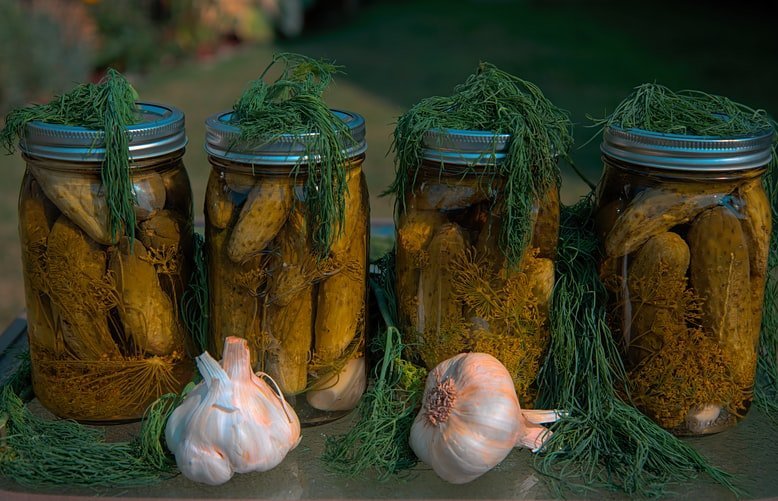I adore pickles. I enjoy the sourness, saltiness, and crunchiness alone or in dishes. But fellow pickle-loving clients frequently ask: Are pickles healthy? They can be, but when looking for pickles with health benefits, keep in mind a few things. Here’s my nutritionist’s take on this classic condiment.

Calories in pickles
Pickles are made from cucumbers, so they contain a lot of vitamin C. A dill pickle spear has only 5 calories and few vitamins and minerals, except vitamin K. A spear provides about 7% of the daily requirement for this nutrient, which promotes bone health and blood clotting.
One whole dill pickle (about four spears) provides slightly more nutrition, including immune-boosting vitamin A and small amounts of calcium, potassium, and vitamin C.
Pickles and sat
Remember that pickles are high in sodium. One spear contains over 300 mg, or 13% of the daily recommended limit for healthy adults. If you have high blood pressure or are sensitive to sodium, check the sodium content on the pickle’s Nutrition Facts label.
That means you should double-check the serving size to see how much sodium is in the overall portion. By eating the whole pickle, you’ve consumed 540 mg of sodium, which is about a quarter of the daily recommended limit.
Probiotic benefits
Cucumbers can be pickled in two ways. Curd pickling is a method of preserving cucumbers in salt, with or without tangy acids like vinegar. Pickles can also be fermented. This latter method uses naturally occurring bacteria to produce lactic acid, which gives pickles their distinctive sourness. This includes Lactobacillus, a probiotic linked to better immune function, digestion, and nutrient absorption. Most supermarket pickles are not fermented, so look for pickles labeled as fermented or probiotic.
Even if you’re not looking for probiotics in your pickles, scan the ingredient list before buying a jar. Some brands use only natural ingredients like cucumbers, water, vinegar, and spices. Others, however, contain artificial colors and preservatives, which you may not want.
Pickle juice and cramps are Good for You
As a sports dietitian, I am frequently asked about pickles and pickle juice as an electrolyte source or a way to prevent muscle cramps. A few studies on pickle juice for athletes have yielded mixed results.
An older study in the Journal of Athletic Training found that small amounts of pickle juice did not significantly increase blood electrolyte concentrations. Pickle juice is unlikely to relieve exercise-induced muscle cramps because it lacks sodium and contains acetic acid, which slows stomach emptying and thus nutrient absorption.
Another study found pickle juice to be effective in preventing dehydration-induced cramps. Scientists say the juice’s ability to replenish fluids or electrolytes can not explain the effect. They hypothesized that the juice’s acetic acid could signal the brain to relax a muscle.
How to eat more pickles
Pickles are surprisingly versatile. Apart from burgers and sandwiches, minced pickles can be added to chilled egg, tuna, chicken, or chickpea protein salads. It’s in hummus, potato salad, Bloody Marys, pizza, and even grilled cheese and peanut butter sandwiches. If you’re feeling adventurous, try one of the trendy pickle desserts. Notable out-of-the-box pickle treats include whipped maple cream drizzled pickles and chocolate-covered pickles.
If you want to learn how to make pickles, contact a university agricultural extension or a local culinary school.
Bottom line: if the high sodium content isn’t an issue for you, fermented pickles with probiotics may provide health benefits and are Good for You. Pickles without “good” bacteria are low in calories and provide a good source of vitamin K. Consume in moderation to satisfy a salty-crunchy urge.

